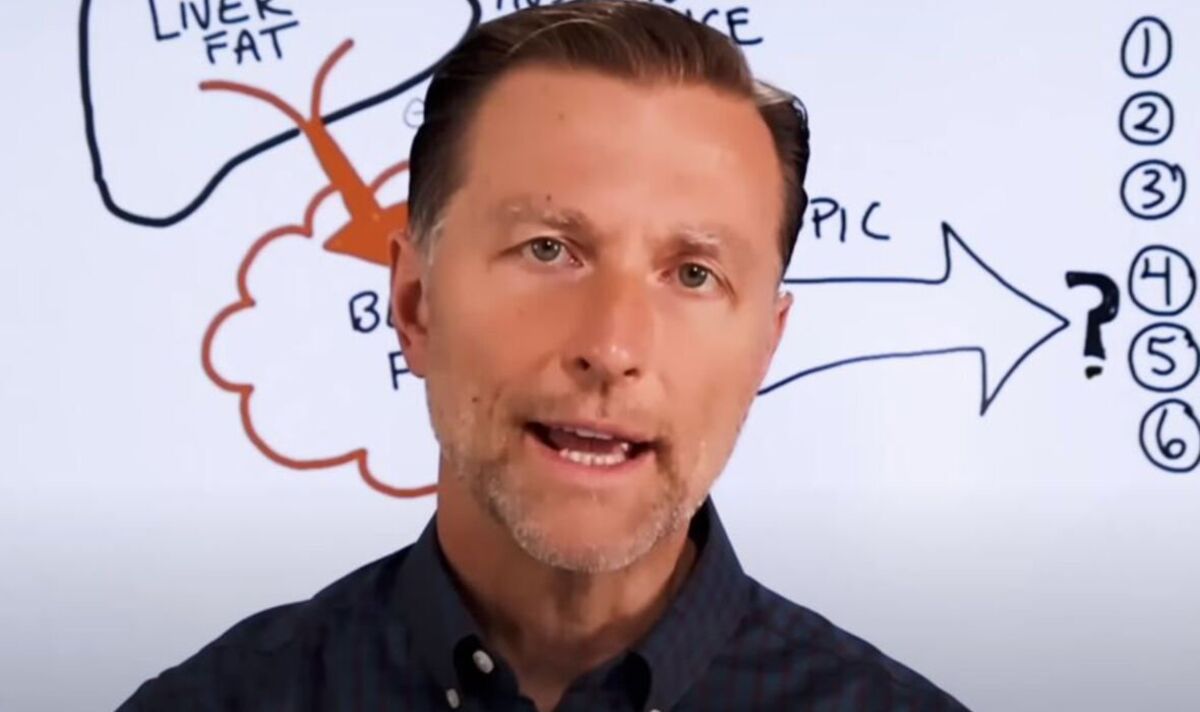It is well known that your weight has an impact on your health. And in recent decades experts have raised concerns about obesity and how populations are increasingly at risk of the associated problems.
However, even storing an amount of fat in one area of the body could also be dangerous. Having too much visceral fat deep in the belly has been linked to conditions such as heart disease, type 2 diabetes and even certain cancers.
A small amount of visceral fat is needed to protect and insulate the organs but if you start to notice you have a potbelly or your belly is bigger than it used to be, this could mean you are starting to get risky amounts.
With this in mind an expert shared the best ways to reduce this type of fat. Speaking to his more than 11 million subscribers on YouTube, Dr Eric Berg said: “Today, I’m going to cover the best ways to get rid of belly fat, central fat, or mid-section fat.
“Belly fat or visceral fat is fat that is outside of the fat cells – it’s in the organs, especially the liver. If you have belly fat, you have a fatty liver.”
Aside from eating too much and not exercising enough, Dr Berg added that hormones can also have an impact on your weight.
“Insulin resistance is what leads to fat on the liver to begin with,” he said.
“Insulin is a fat-storing hormone, and it prevents weight loss. Cortisol is another hormone that can make it difficult to lose weight.”
His weight loss tips are therefore also aimed at reducing levels of these hormones.
Dr Berg’s six tips to get rid of “stubborn” belly fat are:
- Exercise
- Reaching ketosis
- Eating the right amount of fat
- Support liver health
- Intermittent fasting
- Monitoring what works.
Exercise
It seems obvious that exercising is one way to lose weight. However, Dr Berg explained that specific types of exercise are more effective than others.
Aerobic exercise can help lower stress levels and boost sleep, which in turn aids weight loss efforts while high-intensity exercise can burn fat itself.
“Reduce stress and support sleep by doing aerobic exercise (long walks or physical work),” Dr Berg said.
“Burn fat by doing high-intensity interval training without overtraining (two to three times a week).”
Ketosis
Ketosis is a metabolic state that occurs when your body burns fat for energy instead of glucose.
Dr Berg said: “Get your body into ketosis. Reduce the amount of carbohydrates and sugar in your diet.”
Fat
Constantly opting for the low-fat options when eating might not produce the results you are hoping for.
He explained: “Don’t consume excess dietary fat, but don’t go on a low-fat diet either.
“Don’t consume less than 75 grams of fat per day.”
Fats that are considered healthy include monounsaturated fats found in foods like olive oil, avocados, nuts and seeds.
Liver health
To prevent your liver becoming fatty there are things you can do to protect it.
“Support your liver,” Dr Berg said. “Consume apple cider vinegar. Take milk thistle and berberine.”
When drinking apple cider vinegar he recommended adding one tablespoon to a glass of water.
Intermittent fasting
You could try sticking to OMAD – one meal a day, he said.
Dr Berg continued: “Intermittent fasting is the most important thing for fast weight loss and to support a healthy body.”
Monitoring and adapting
Certain weight loss efforts will work better on some people than others.
He added: “Stay aware of what works and what doesn’t. Evaluate your environment, create healthy habits, and stay consistent.”










